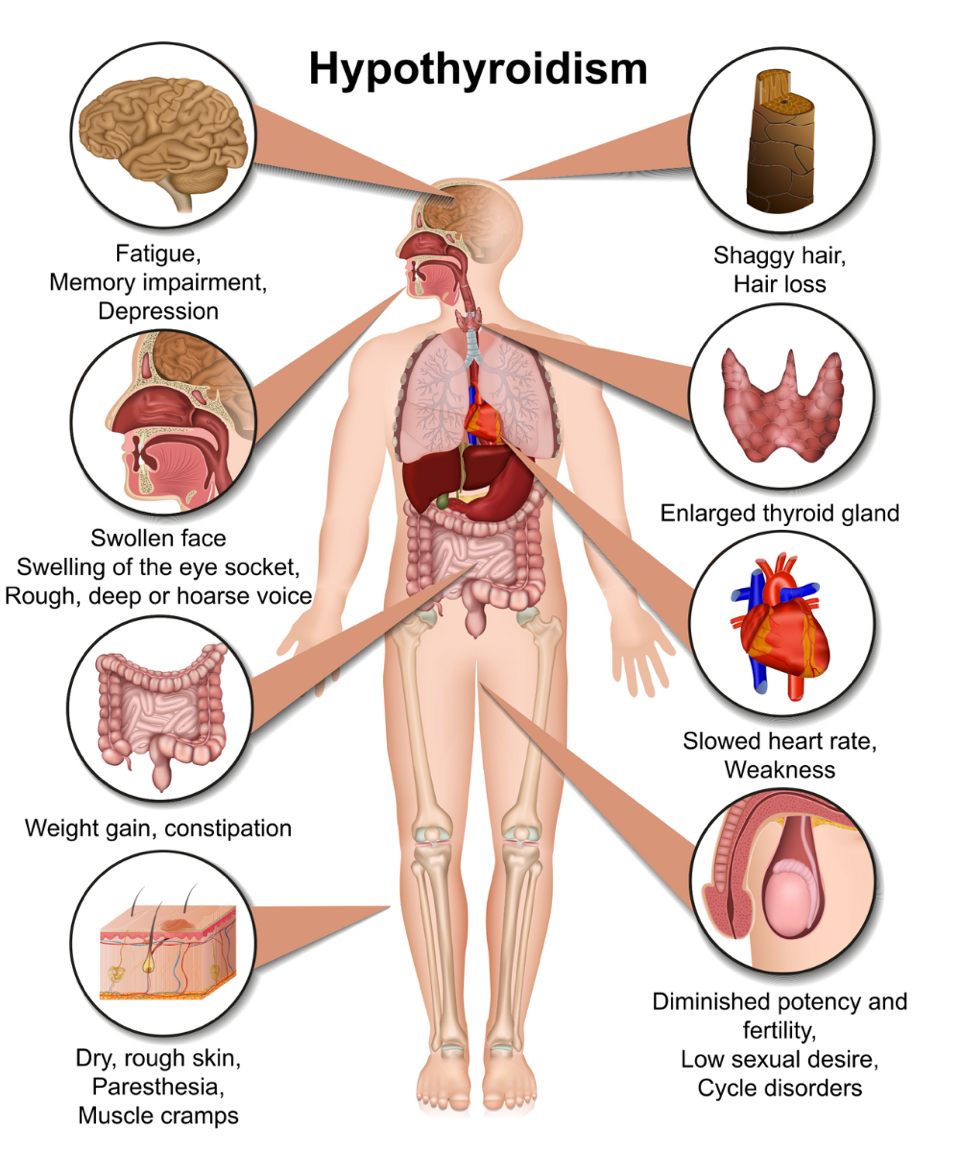What's On This Page?
ToggleI like saying “I told you so” because it usually means you got my help years before everyone else.
In this case, I’m talking about chronic headaches and migraines, and how these conditions are tied to hypothyroidism and thyroid hormone insufficiencies.
Because headache and thyroid disease is not life-threatening, there isn’t a lot of research on them, but either condition can leave you disabled, impair relationships and reduce your ability to work or play with your children.
Six years after I first alerted you to this, a new and very large study appeared in the September 2016 issue of a highly respected publication, The Journal of Head and Face Pain. I’ll nutshell it for you here.
Researchers followed over 8,400 people for 20 years. They tracked vital statistics such as the frequency of headache and migraines as well as biomarkers of thyroid disease. What they found is exactly what I told you in my books, Thyroid Healthy, and Headache Free… that people with migraines, clusters, and tension almost always have hypothyroidism.
Researchers analyzed data and realized that people with the chronic condition had a 21 percent increased risk of developing hypothyroidism while those with frequent migraines showed an increased risk of close to 40 percent.
The conditions often go hand in hand. Your doctor needs to be vigilant about testing your thyroid properly (and not just the TSH!) if you suffer from headaches.
If you’re unfamiliar with thyroid illness, or you’ve been told you don’t have it because your lab tests are fine, let me say it here: You might have been misinformed.

I don’t believe in standard blood tests. Your symptoms and body temperature are way more accurate than our tests such as the TSH, which doesn’t prove a thing.
Hypothyroidism is a condition where your body fails to produce adequate amounts of thyroid hormone, or perhaps it produces it, but your cells can’t take it in and put it to use. Symptoms of low thyroid include the following:
- Anxiety and/or an unstable mood
- Weight gain or inability to lose weight
- Skin rashes, dry skin &/or itching
- Hair loss or thinning- this could include poor eyebrow and eyelash growth
- Irregular menstrual cycles
- Feeling cold
- Poor energy or chronic fatigue
- Heart palpitations
Do you see yourself in the list above?
Maybe you look pale, sleep fitfully or not at all, or eat like a bird and still gain weight.
If you have some of these symptoms, you might have low thyroid hormone levels regardless of what your lab tests say. If you take a medication for cholesterol like a statin, your risk for hypothyroidism might be raised, so after a few months of taking it your cholesterol numbers look good, but you feel tired, weak, and heavier.

I think there are lots of people with statin-induced hypothyroidism, which is easy to solve by supporting yourself on thyroid medication (with your statin). I told you about that little problem 7 years ago!
Anyway, researchers from the University of Cincinnati College of Medicine did a great job monitoring these folks, and what they noticed could help you.
People with a chronic condition have a 21% higher risk of having hypothyroidism, and those with migraines have a 41% greater risk of thyroid disease. Pretty staggering numbers, don’t you think?
Lab Reference Ranges
If you have migraines, your thyroid might need to be checked properly. The labs I want you to take along with a better set of reference ranges (because the ones on your lab report are old), are below. I’ve taken the excerpt from my book, Thyroid Healthy, on pages 50-52.
Free T4 or Free Thyroxine: 0.8-1.8 ng/dl
Total T3: 140-175 ng/dl
Free T3 or Free Triiodothyronine: 3.5 to 4.3 pg/ml
Reverse T3 or rT3: <15 ng/dl (sometimes expressed as <150)
Free T3 to rT3 Ratio: >2
Ferritin (related to iron) 70-90 mg/dl
TSH 0.1 to 1.5 mIU/I
TPO Antibodies < 20 IU/ml
Other causes are listed in my Headache Free book. Among the biggest offenders are histamine-containing foods or fermented foods and drinks like kombucha and wine; cold cuts, hot dogs, and aged cheese. Another common cause is the use of cough and cold remedies, antidepressants, antibiotics, and antihistamines.
If you live in chronic pain or despair I really want to assure you that there is help out there, it’s often something relatively simple, and regardless of your headache, there are solutions. For additional support, I’d like to offer you a complimentary chapter from my book on headaches. If you’d like to download it, please just click here.
Do not ever give up!

Suzy Cohen, has been a licensed pharmacist for over 30 years and believes the best approach to chronic illness is a combination of natural medicine and conventional. She founded her own dietary supplement company specializing in custom-formulas, some of which have patents. With a special focus on functional medicine, thyroid health and drug nutrient depletion, Suzy is the author of several related books including Thyroid Healthy, Drug Muggers, Diabetes Without Drugs, and a nationally syndicated column.



